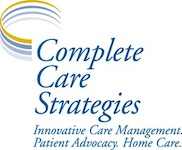With the weather warming up across the country, it’s an appropriate time to discuss the risks of dehydration. As we age, our bodies undergo many changes, including an increased risk of dehydration. Dehydration occurs when the body loses more fluids than it takes in, which can lead to serious health problems.
Why Older Adults Need to Stay Hydrated
There are many risks of dehydration in the aging population, including an increased risk of falls, urinary tract infections, kidney stones, and even cognitive decline. This is why drinking plenty of fluids throughout the day is so important.
Tips to Help Older Adults Stay Hydrated
- Drink plenty of liquids. Water is essential for staying hydrated, but choosing other beverages that may be more flavorful and appealing to your loved one is also beneficial. Juices, Gatorade, and zero-sugar powders to add to water are all good choices.
- Eat hydrating foods. Foods like watermelon, cucumbers, carrots, and celery are all high in water content and can help you stay hydrated.
- Avoid caffeinated drinks. Drinks like soda, coffee, and some teas can actually dehydrate you.
- Set reminders to drink throughout the day. It’s easy to forget to drink throughout the day, so set reminders on your phone, watch, or Alexa to remind you or your loved one to drink.
By following these tips and working with an Aging Life Care Manager, you can ensure that you stay hydrated and healthy as you age.
About the Author
As CEO of Complete Care Strategies, Rebecca Roskey-Brunner leverages over 20 years of experience as a Registered Nurse and Certified Care Manager to serve clients with special needs, the medically complex, and older adults facing health challenges to improve their quality of life. As an Aging Life Care Professional, Rebecca brings deep expertise in individualized care planning, dementia care, care coordination, and crisis prevention for vulnerable seniors.

